Last updated on Mar 13, 2020
By Shannon Miller
Assistant News Editor
Some students living on campus have growing concerns about the cleanliness and maintenance of the Riggs, Post and Brookville Residence Halls. Complaints range from declining restroom conditions to a lingering mold problem.
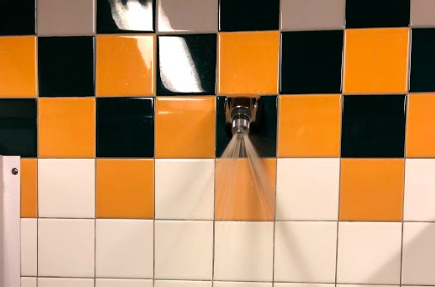
The Pioneer has reported on mold and poor dorm conditions for almost a decade, and as students come and go, grievances remain. As students returned to their dorms from the 2018-19 winter break, residents added new frustrations to an old list of unresolved issues.
Concerns regarding building conditions on campus are addressed by the facilities services department after they’ve been reported; however, if they’re not aware of the problem, they can’t fix it, according to Roy Fergus, head of facilities services.
Post Hall resident and junior theater major, Alyssa Williams, noticed something was missing in the bathroom at the end of last semester.
“We literally just walked into the restroom to take a shower and were just like ‘oh, our shower heads are gone,’” she said.
There are three showers in this women’s bathroom, and according to Williams, all of the shower heads have yet to be replaced.
Williams doesn’t mind the missing fixtures because “you actually get water pressure,” she said. Contrarily, her friends are irritated because the water isn’t controlled and shoots out like a hose, making for an uncomfortable, and at times painful, shower.
Williams is more concerned about the corroded and broken water fountains throughout the building. Only one works and it’s located on the first floor. What was once a shiny stainless steel is now layered in a crusty film.
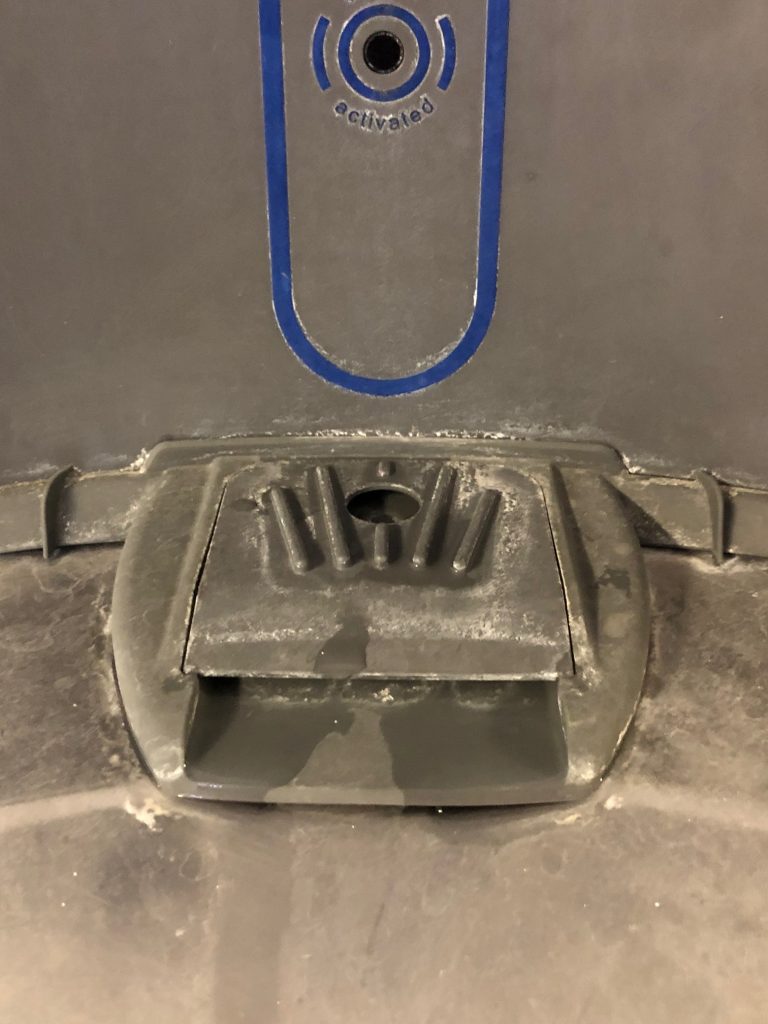
“The water fountains are all white,” she said. “They look like milk.”
Fergus asserted the facilities department was unaware of any complaints concerning the conditions of the water fountains. He said he plans to submit a work order immediately for plumbers to address the situation.
Brookville Hall resident and junior nutrition major Katie Bendersky avoids showering in her dorm’s restroom. She prefers to use the facilities in the school’s recreation center.
“I shower at Pratt because the showers here don’t even get that hot really,” she said.
Bendersky is uncertain if the dorm stalls are missing shower heads or if they’re just subpar, but like those in Post Hall, she too described them as painful.
“Even when I go to Pratt it sometimes hurts and I have to use the handicap one, and I feel terrible about it,” she said, “But this has an actual shower head and I’m not getting pelted by this one’s stream,” she said.
The facilities department didn’t acknowledge directly whether Fergus or his staff were aware of the missing shower heads. They also couldn’t confirm if complaints exist in the TMA work order system.
Amara Batakas, a junior criminal justice major who is also a resident of Brookville Hall, hasn’t noticed if the stalls are missing shower heads, but said her friend was relocated from her dorm because of the mold.
“I’m just going to go on a wild guess here that there’s mold in every building, and they really need to do something about it,” she said.
But sports management major, Jordan Valerius Twyman, a junior who transferred to Post this semester, has yet to see any mold or missing plumbing fixtures in Brookville’s bathrooms.
When the resident advisors held their meeting at the start of the semester, they advised residents to keep the restrooms as clean as possible.
“If we didn’t, the janitors wouldn’t clean it for us,” Twyman said.
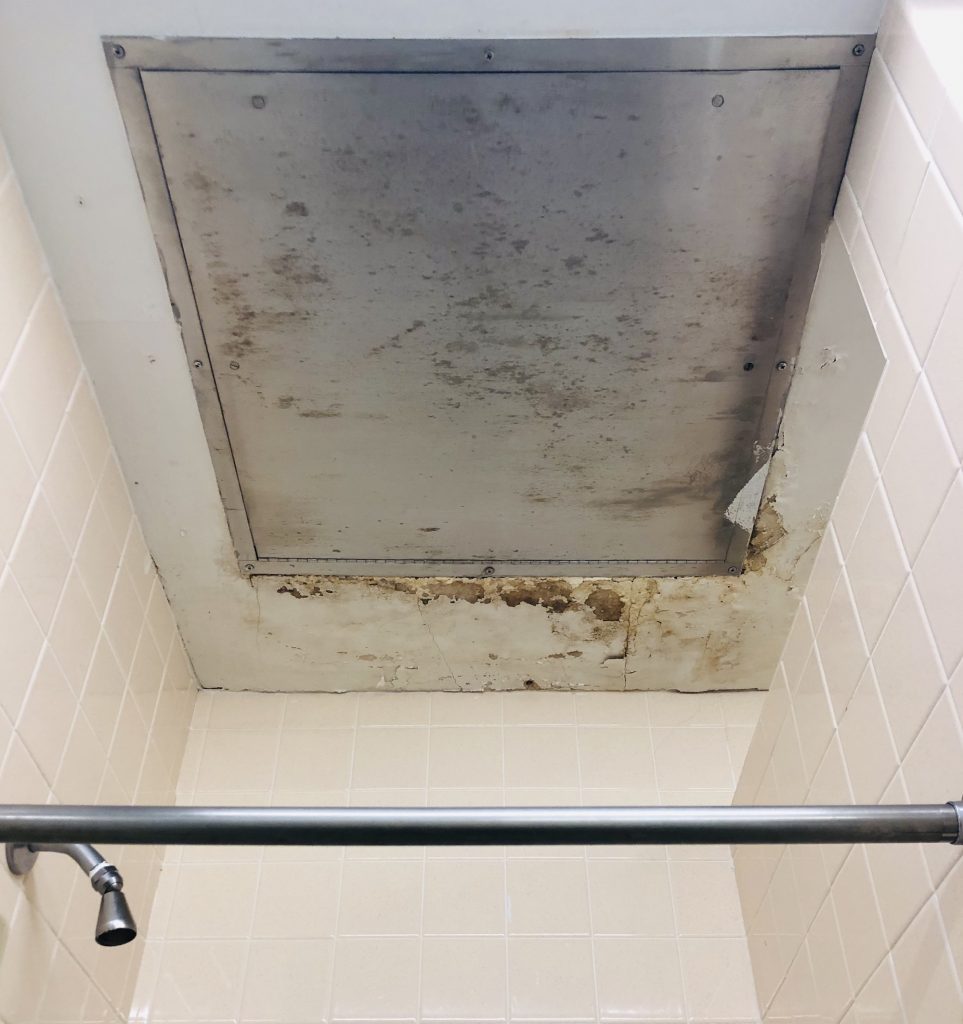
In Riggs Hall, some residents are disappointed in the upkeep of the building. Sophomore theater major, Emma Kocar, recalled all of the showers not functioning in a first-floor restroom for the majority of the fall semester, forcing students to shower on a different floor. Although, like others, the mold growing in the bathroom she uses is her main concern.
“It didn’t really start getting cleaned up until people started complaining about black mold in the dorms,” she said.
The spread of mold is taken very seriously, according to Fergus, who emphasized that response time is key. When aware of it, the custodial staff is trained to wipe it down immediately using a green chemical solution.
“Our frontline is our daily staff out in the buildings,” he said. “Anytime we see windows open we want to get them closed. If there is a hole in the wall somewhere, we need to know about it because that’s generally the way we get mold infiltration.”
Despite attempts to control the problem, the black mold is still noticeable in many areas of the bathroom, according to some students. It’s growing in the shower stalls, around the rims of the sinks and on the corroded ceiling tiles.
“It’s concerning cause it’s mold that really shouldn’t be growing in a bathroom that you’re using on a regular basis,” Kocar said. “We all pay a lot of money to go here and it’s a problem.”
The cost to dorm on campus almost doubles the cost of commuter tuition, making some resident’s wonder where their money goes. Kirsten Kirker, a senior nursing major, resided on campus her first three years. She decided to commute her senior year for financial reasons. She resided in Queens Hall her freshman year, in Brookville Hall her sophomore year, and then Riggs her junior year. Like Kocar, she also experienced problems with the shower stalls in Riggs.
“The woman’s shower was completely sealed off, so we had to go upstairs and use that bathroom,” she said.
Fergus advises students to become familiar with their work order request system, TMA, which was put into place last year. TMA provides the facilities department with management software meant to expedite the communication process between them and those requiring maintenance. Once a work order is received, they deploy staff to get it repaired.
Fergus encouraged all students to utilize the newly implemented system. “You need any service at any time, anywhere, you’re able to put it in the system and we can certainly get to everything within 24 hours,” he said.
Sophomore student, Sophia Strauss, used TMA when her dorm room ceiling began leaking one night. When mold appeared on their furniture shortly after, they were moved into a new dorm room where they again found mold growing on the bed frames. With help from their resident advisor, a TMA ticket was submitted, and according to Strauss, staff arrived that day to remove and replace the moldy furniture.
“People do fill out work orders,” she said, “Once the R.A. got involved, they did it all for us. That way we can just have a smooth move back in.”
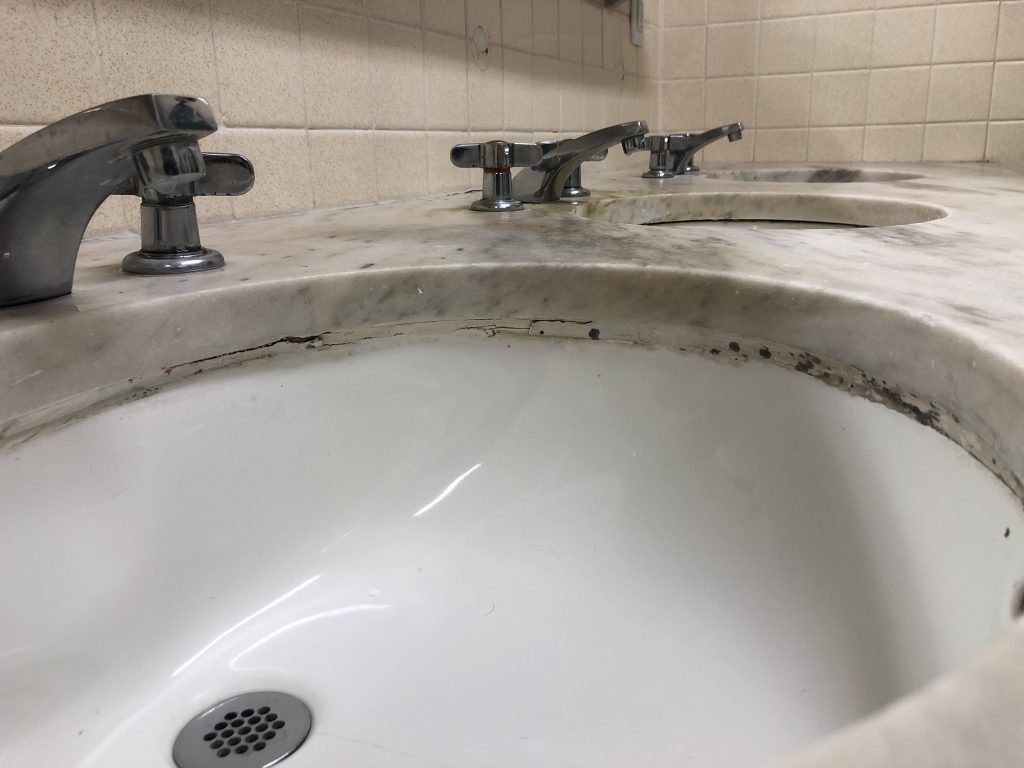
When residents submit a work order, they will receive an email back stating their request was received, Fergus said. A second email is then sent when the work order is assigned to a technician, and a final email goes out once the work order is completed.
By using this new system, according to Fergus, “there is always an ability to know where your work request is in the system.”
The facilities page of the LIU website doesn’t provide the necessary web links needed to complete a TMA work order; nor does it reflect the newly implicated protocol suggested by the facilities department.
A link to the web-based TMA form is provided in Brookville Hall’s Instagram profile for those who use the social media app. If help is needed completing the form, resident advisors are available to assist students with the process.
If both are unavailable, students can contact facilities services at 516-299-2277.

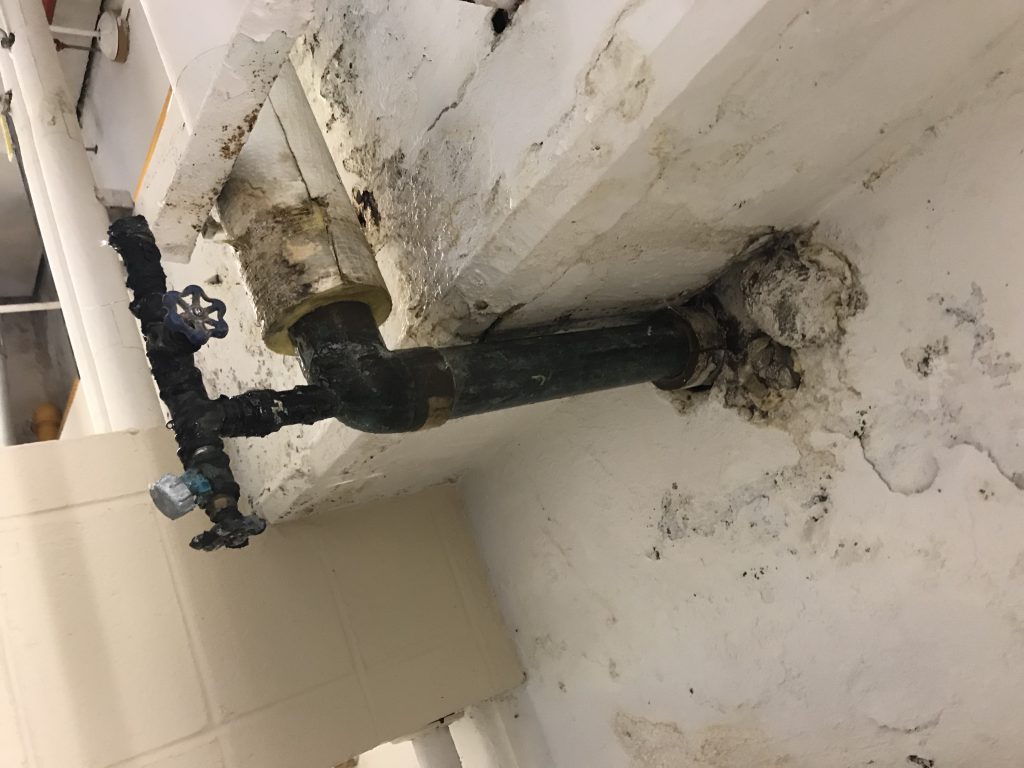






This is the in depth reporting that college students like myself like to see. The school should really do something about this. I would really like to see a follow up story to see how the school acts to take care of this.